Tackling trauma: inside Black Panther: Wakanda Forever's grief-laden conflicts
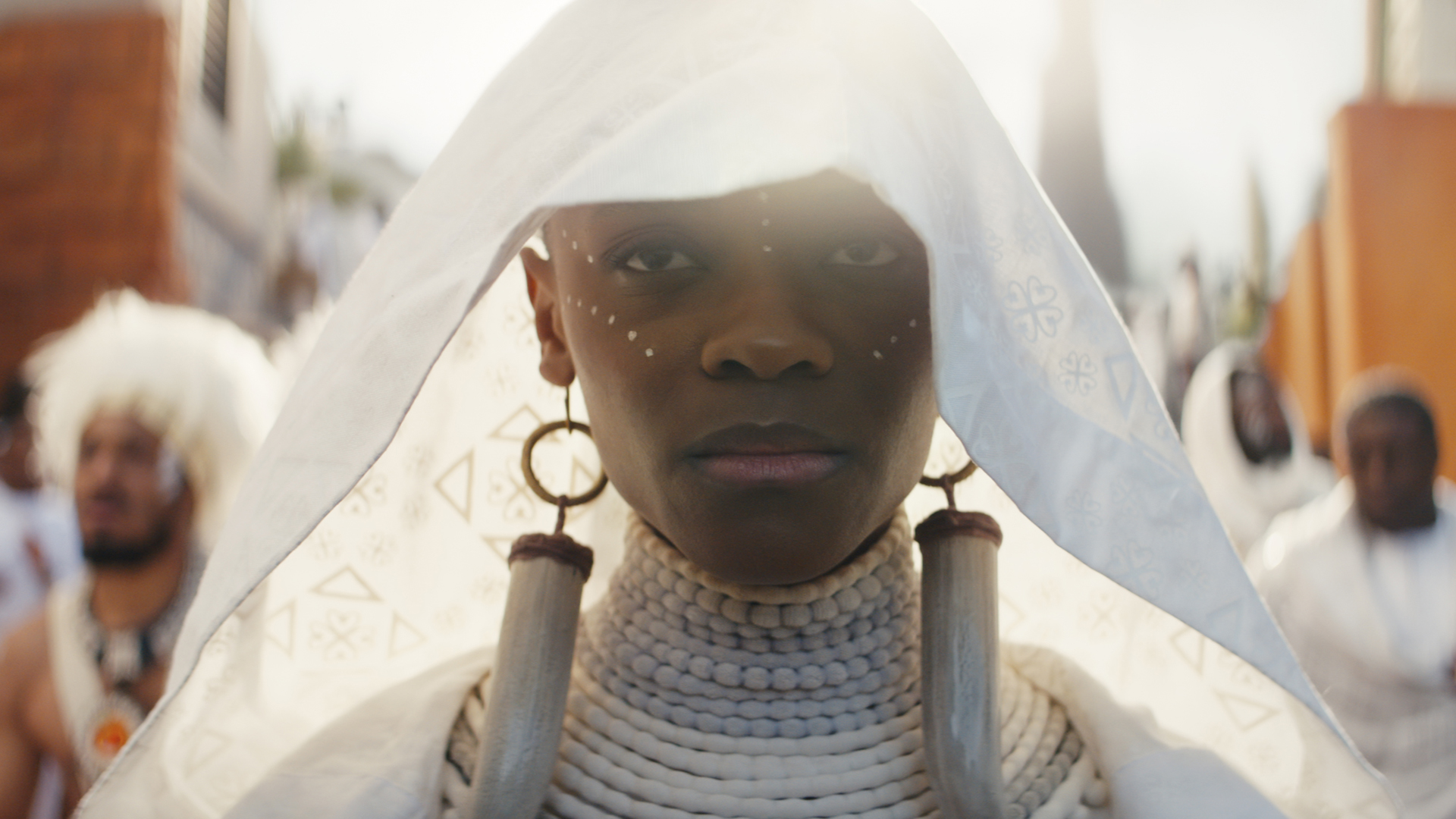
Sign up for breaking news, reviews, opinion, top tech deals, and more.
You are now subscribed
Your newsletter sign-up was successful
Black Panther: Wakanda Forever is a movie rooted in grief. Its exploration of immeasurable loss, dealing with the day-to-day heartache, and eventually making peace with that sorrow is tangible throughout the 30th Marvel Cinematic Universe (MCU) movie.
Given the circumstances surrounding its development, the superhero film’s examination of such subject matter is understandable. The unexpected death of Chadwick Boseman, who played T’Challa/Black Panther in five Marvel projects, in August 2020 left an indelible mark on its cast and crew, the MCU, and the world. The communal sense of loss was so severe that those involved in Black Panther’s first solo film wondered if they could face making a follow-up.
Two years on, Black Panther: Wakanda Forever – an emotionally charged sequel to Marvel’s first Best Picture Oscar nominee – is primed to celebrate Boseman’s life and MCU legacy. Equally, it provides a degree of catharsis, not only to his fans but to those who knew Boseman – and, in the MCU, T’Challa – best.
“The world gets to see a kaleidoscope of each character’s humanness,” Danai Gurira, who plays Okoye, tells TechRadar. “It isn’t very common in a movie like this – it’s almost unprecedented. That’s connected to the loss of our brother [Boseman]. He loved seeing us shine, so this is really about honoring him and exploring the many facets of our characters through T’Challa’s death.”
Grappling with grief
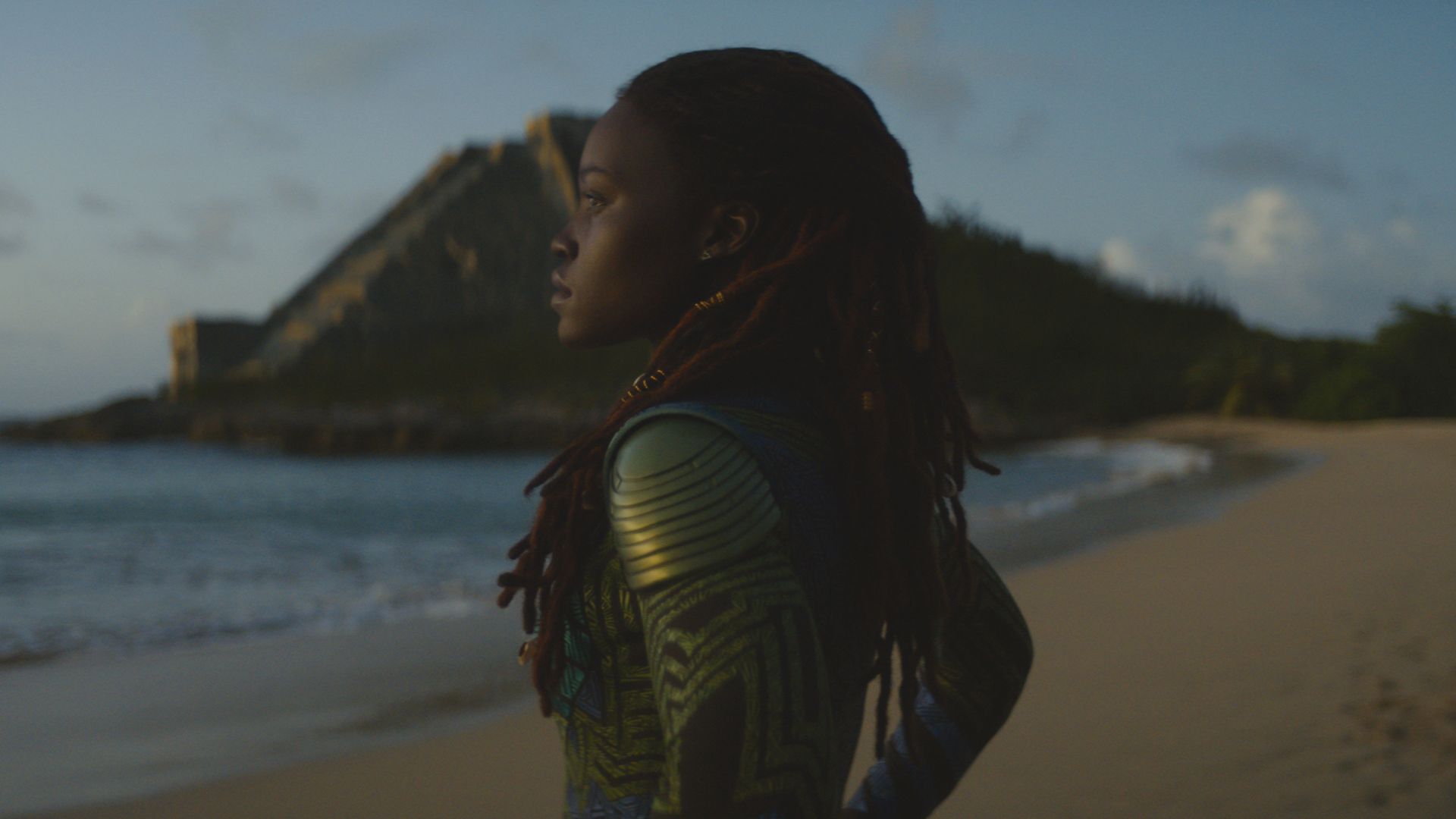
Wakanda Forever opens one year after T’Challa’s passing, with those closest to him struggling to pick up the pieces. T’Challa’s younger, genius-level sister Shuri (Letitia Wright) has buried herself in her work and his one true love – Wakandan war dog Nakia (Lupita Nyong’o) – has left for pastures new. It’s up to Queen Regent Ramonda (Angela Bassett) to guide Wakanda through another turbulent period, simultaneously fighting off other countries for the kingdom’s vibranium resources and mourning the death of her only son.
Gurira’s Okoye, head of the Dora Milaje (Wakanda’s all-female special forces), is equally unable to grieve for T’Challa. With no one assuming the Black Panther mantle after his death, Okoye’s role in keeping Wakanda safe is more important than ever – circumstances that leave her little time to emotionally heal and accept Wakanda’s latest king is no longer around.
We trained for months and then the scene took so long to shoot
Alex Livinalli, Black Panther 2 actor
It’s this dichotomy that fuels Okoye’s deeply moving character arc in Wakanda Forever. Viewers will remember how loyal she is to the Wakandan throne – Okoye famously telling Nakia “I am loyal to the throne, no matter who sits upon it” during one particularly tense Black Panther scene, before later revealing to ex-love W’Kabi she’d kill him to keep Wakanda safe.
Sign up for breaking news, reviews, opinion, top tech deals, and more.
Emotionally and mentally fractured by T’Challa’s passing, Okoye’s judgement is skewed throughout Black Panther 2. Her questionable decision-making sees Okoye make grave errors that, without spoiling anything, threaten the safety of her country and her role in protecting it.
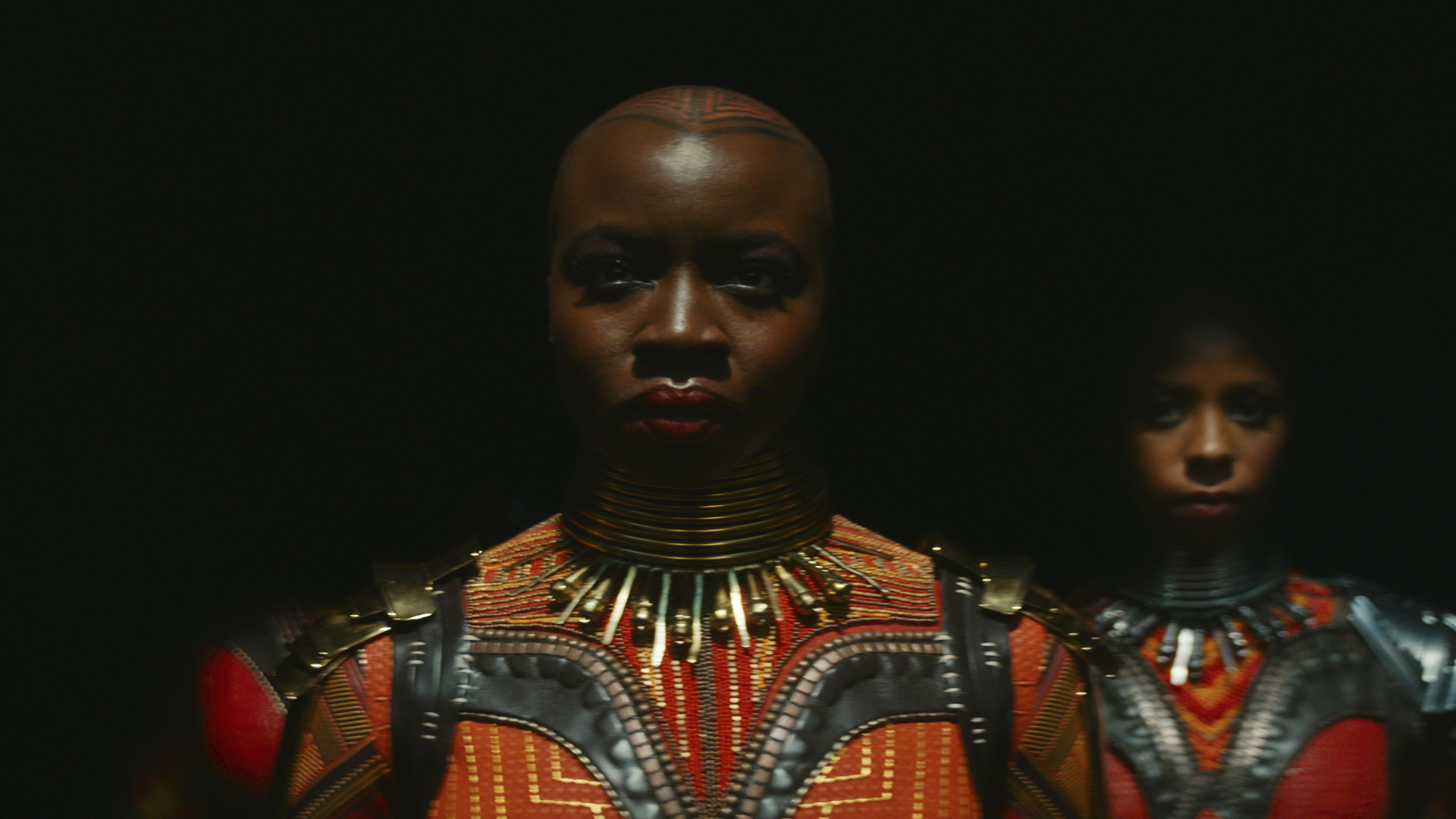
For Gurira, having the license to explore new elements of Okoye’s personality, including how she handles life-altering events, and her character reinvention was concurrently frightening and liberating.
“Okoye has always represented something I thought was so beautiful and crucial, which is protecting this nation that’s never been colonized,” Gurira explains. “ I grew up in Zimbabwe, so the idea of Wakanda, a nation that’s never been invaded and has found its own voice, was very powerful to me. And playing a woman who was connected to that type of mission is something that I really get.
“To see what she goes through in this movie, especially as a traditionalist who protects her nation, allowed that newfound vulnerability to happen. Initially, I felt displaced in the process, and I think that was connected to what my character feels throughout. But the circumstances of the world, loss, and grief involved in this film were incredibly organic. It was an anchor for me and helped me make that connection to Okoye’s journey.”
Making waves
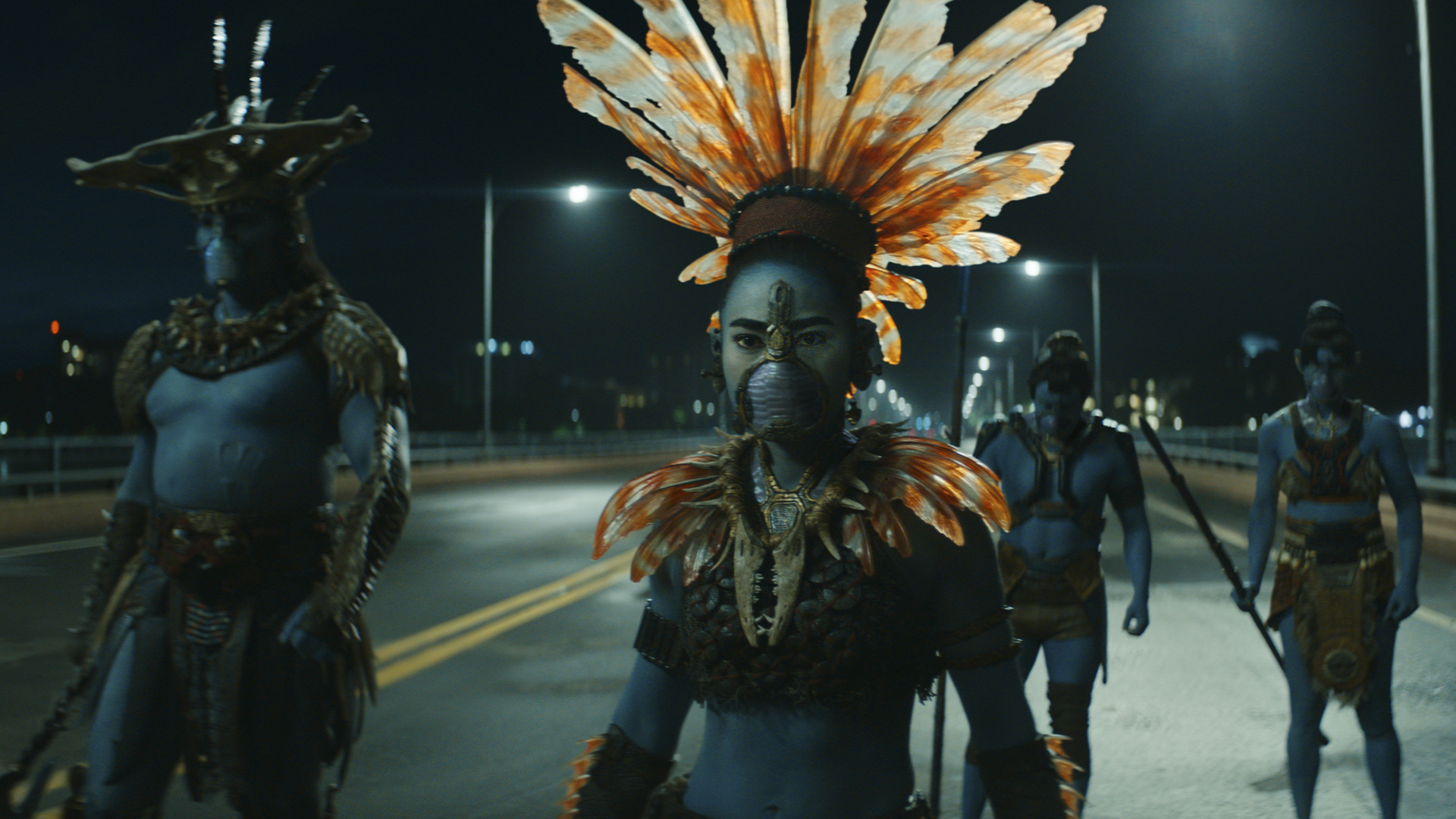
Compellingly, Wakanda Forever’s primary antagonist Namor (Tenoch Huerta) and the ocean-dwelling kingdom of Talokan, which he rules, share similarities with the African kingdom and its monarchy. They’re nations enveloped in secrecy, choosing to hide from the world – that was the case for Wakanda until 2018’s Black Panther – to protect themselves and their vast reserves of vibranium, the globe’s most precious metal.
Talokan and Wakanda are diametrically opposed, though, over how they handle outside threats. Where T’Challa and Wakanda chose to share their gifts with the world – a decision that has major implications for the realm in this MCU Phase 4 film – Talokan continues to maintain its distance. Fearing other countries will invade his underwater kingdom and plunder its vibranium, Namor opts to remain hidden. That is until T’Challa inadvertently forced Namor’s hand, resulting in the mutant anti-hero taking a Killmonger-style stance to wage war on the rest of the world.
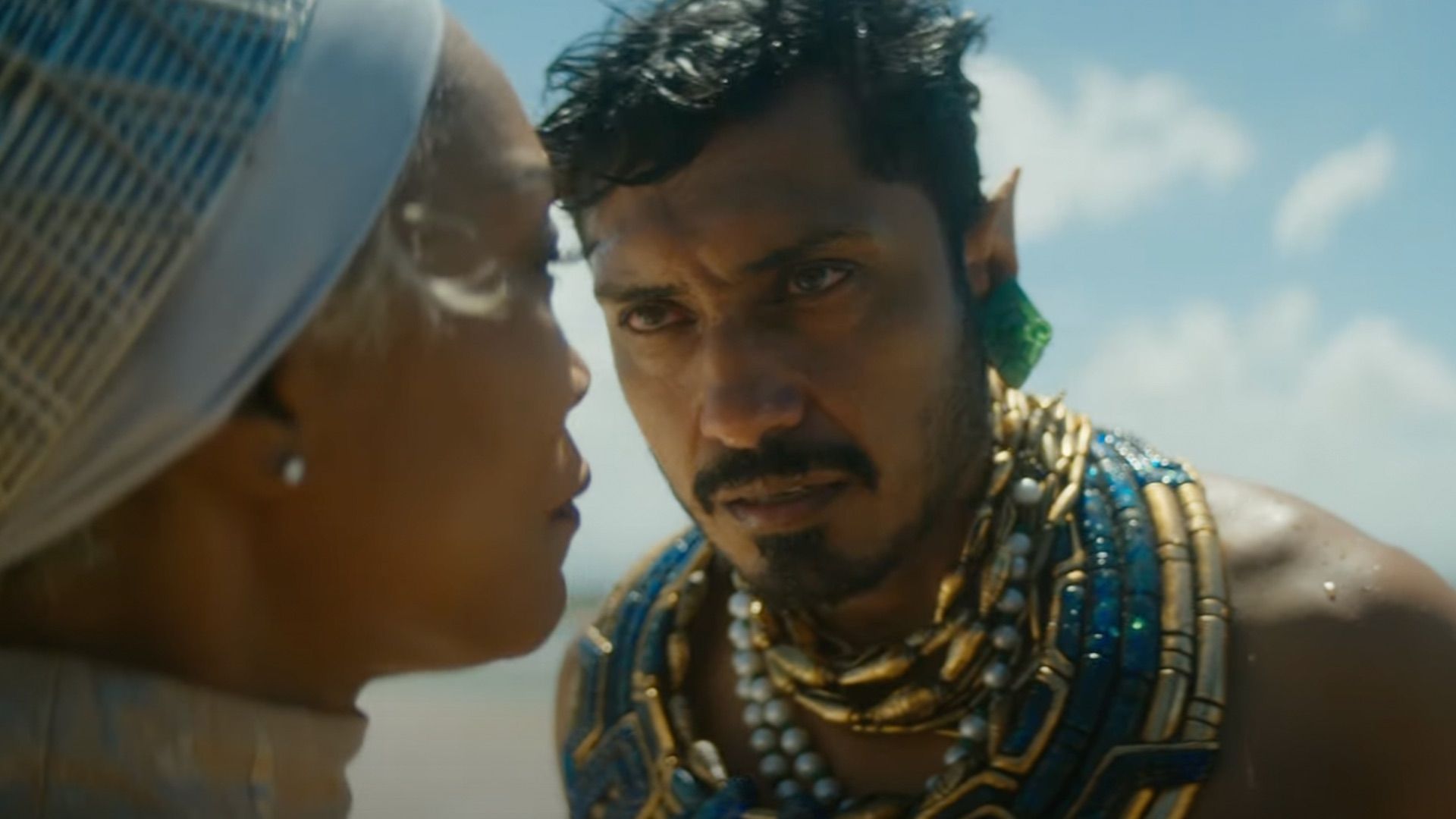
It’s this juxtaposition between the two technologically advanced civilizations that makes Wakanda Forever’s story so fascinating. However, much like their surface-dwelling frenemies, there are members of the Talokanil who agree with and oppose the choices Namor makes to defend their Mesoamerican-inspired home.
Namora (Mabel Cadena) is one such individual. Namor’s cousin and close confidant initially concurs with his resolve to go to war with Wakanda and anyone else who sides against Talokan. However, fault lines form in their familial bond as the plot progresses, signalling the start of a psychological conflict within Namora that might set up a potentially intriguing intrafamilial battle in any Namor spin-off projects Marvel is planning.
“Working with Tenoch to build that relationship was incredible,” Cadena says. “As Mexicans, to put those Latin American family-like relationships into a Marvel movie is wonderful. Mexican people are very warm and our families are very close, but when we argue, we really argue and fight for what we think is right. So Tenoch and I worked a lot to put those little nuances into our dynamic and I hope people pick up on those special little things.”
Clash of the titans
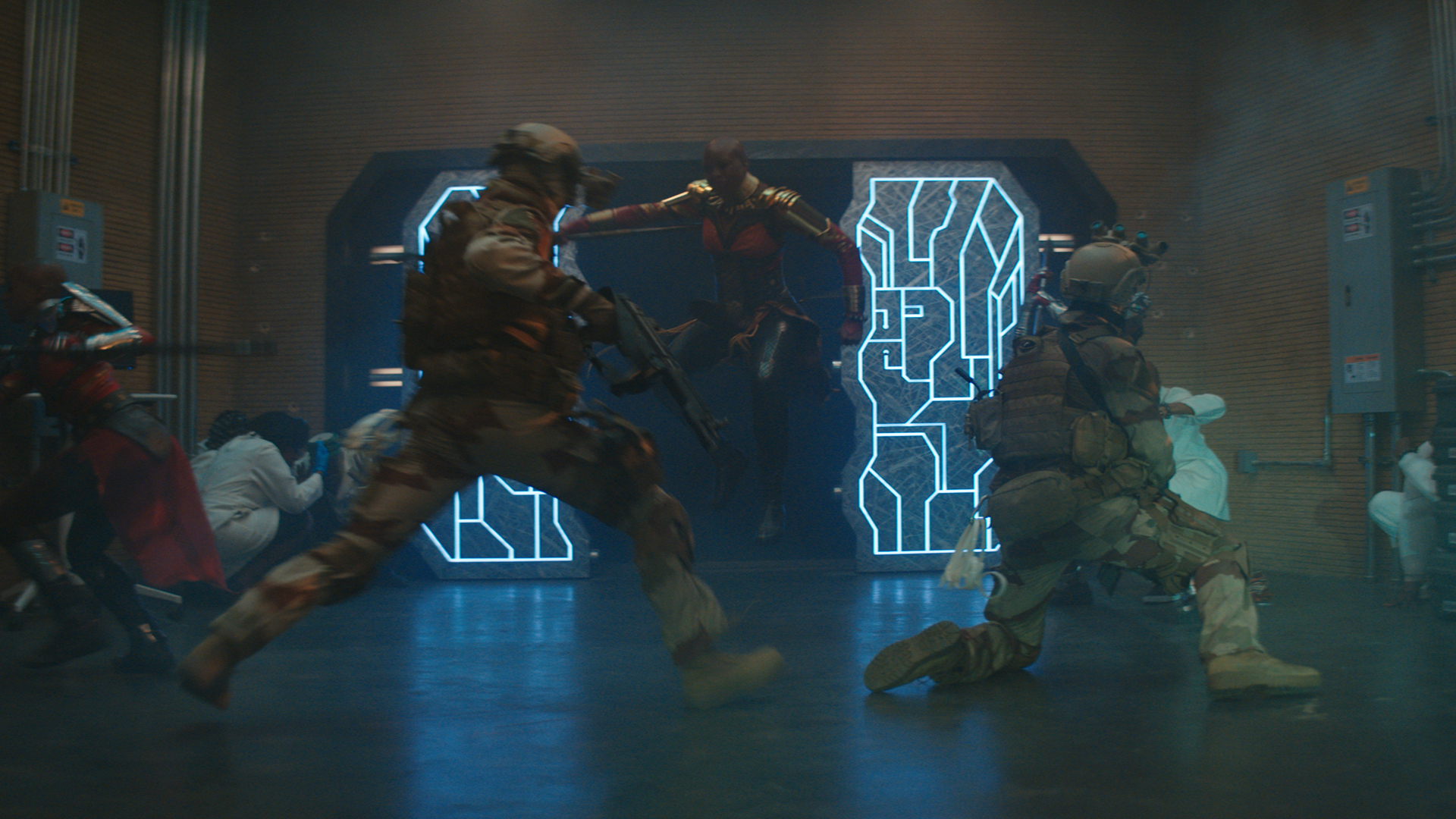
No Marvel movie is complete with thrilling, big-budget action sequences, and Wakanda Forever is no different. From a Chicago-based chase sequence, which fans have glimpsed in the film’s official trailer, to the prerequisite blockbuster finale, Black Panther 2 is as thoroughly entertaining as it is poignant.
It’s the intricate duels between certain characters, though, that elevate Wakanda Forever’s fight scenarios above its contemporaries. Of those, a bridge showdown between Okoye and Talokan’s greatest warrior Attuma (Alex Livinalli) is arguably the most impressive. It’s a balletic fight sequence showcasing two titans at the top of their game and a showstopper that fittingly caps off the Chicago-centric portion of the film.
The grief in this film is incredibly organic
Danai Gurira, Black Panther 2 actor
In the context of a two hour 40 minute long movie, the Okoye versus Attuma battle might not seem too arduous from a filming standpoint. However, for Gurira and Livinalli, it was a sequence that took months to perfect and eclipsed anything Gurira shot in her previous MCU outings.
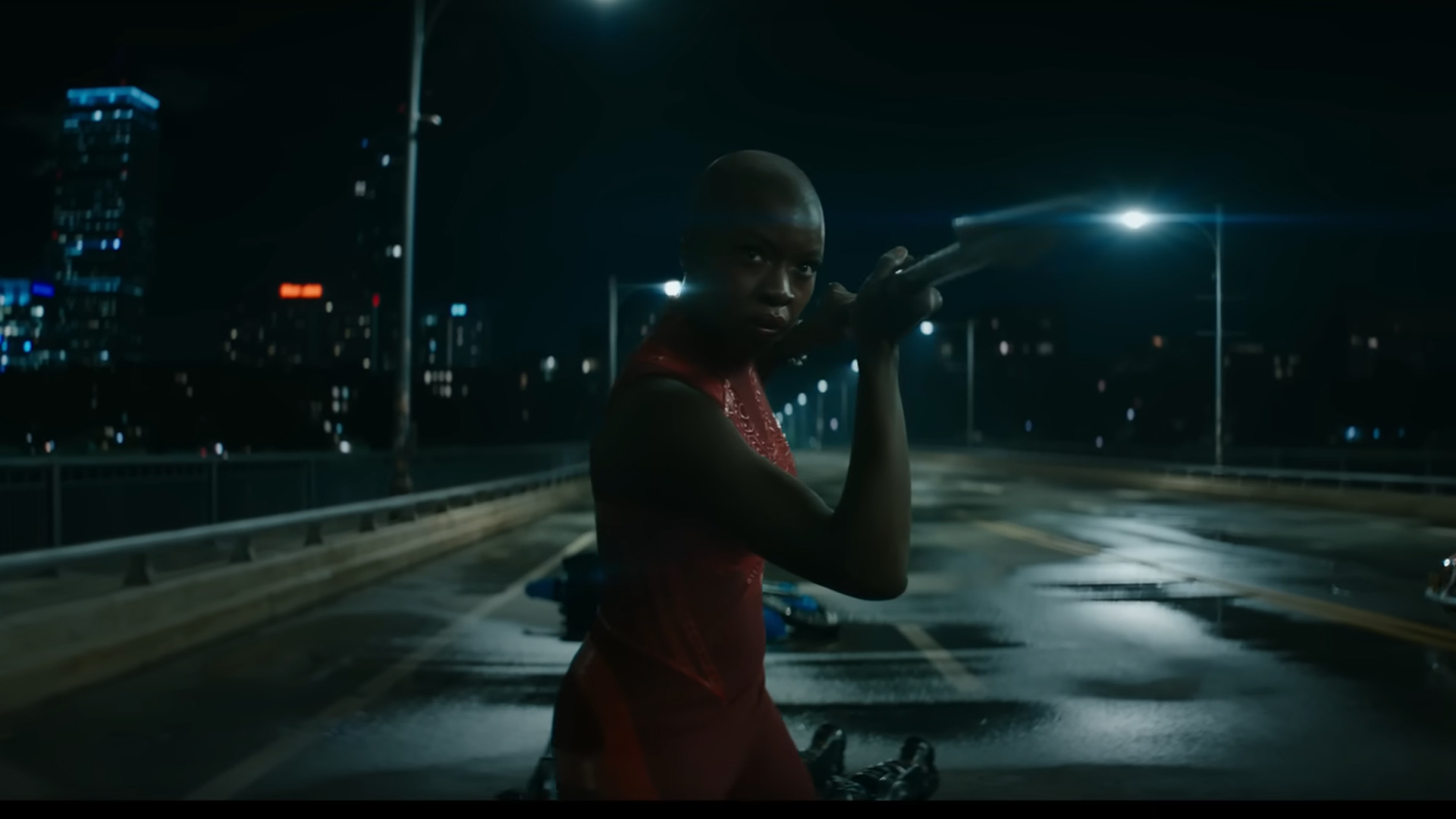
“That was the longest scene I shot in the movie,” Livinalli reveals. “We trained for months and then the scene took so long to shoot. It was one of the first sequences that was captured during production and we ended up wrapping on the very last day still shooting it. It was hard, but I had such an amazing dance partner in Danai. It was important that our choreography was in sync.”
“It’s a process,” Gurira adds. “The second-to-second aspects are intricately thought through by the stunt team. But you might be training for months and then Ryan [Coogler, Black Panther 1 and 2's director] would come in, look at the fight and say ‘I don’t know about that’ or ‘I don’t think you’d do this here’, so things can shift day to day.
“But I love it, I’m a real nut for it and I love Okoye’s spear – it’s like an appendage for her. The way she fights is very tactical, clean, and traditional. Finding the fight in her is also about finding her character, too. She’s a warrior and, when that’s challenged, she’s challenged on a personal level, so it all interweaves quite well from a character exploration perspective.”
Whether it’s the external skirmishes between opposing characters or the internal, emotional battles that the film’s cast combatted before, during and after filming, Wakanda Forever is a Marvel movie that thematically explores the fights we face and how we develop strength from them.
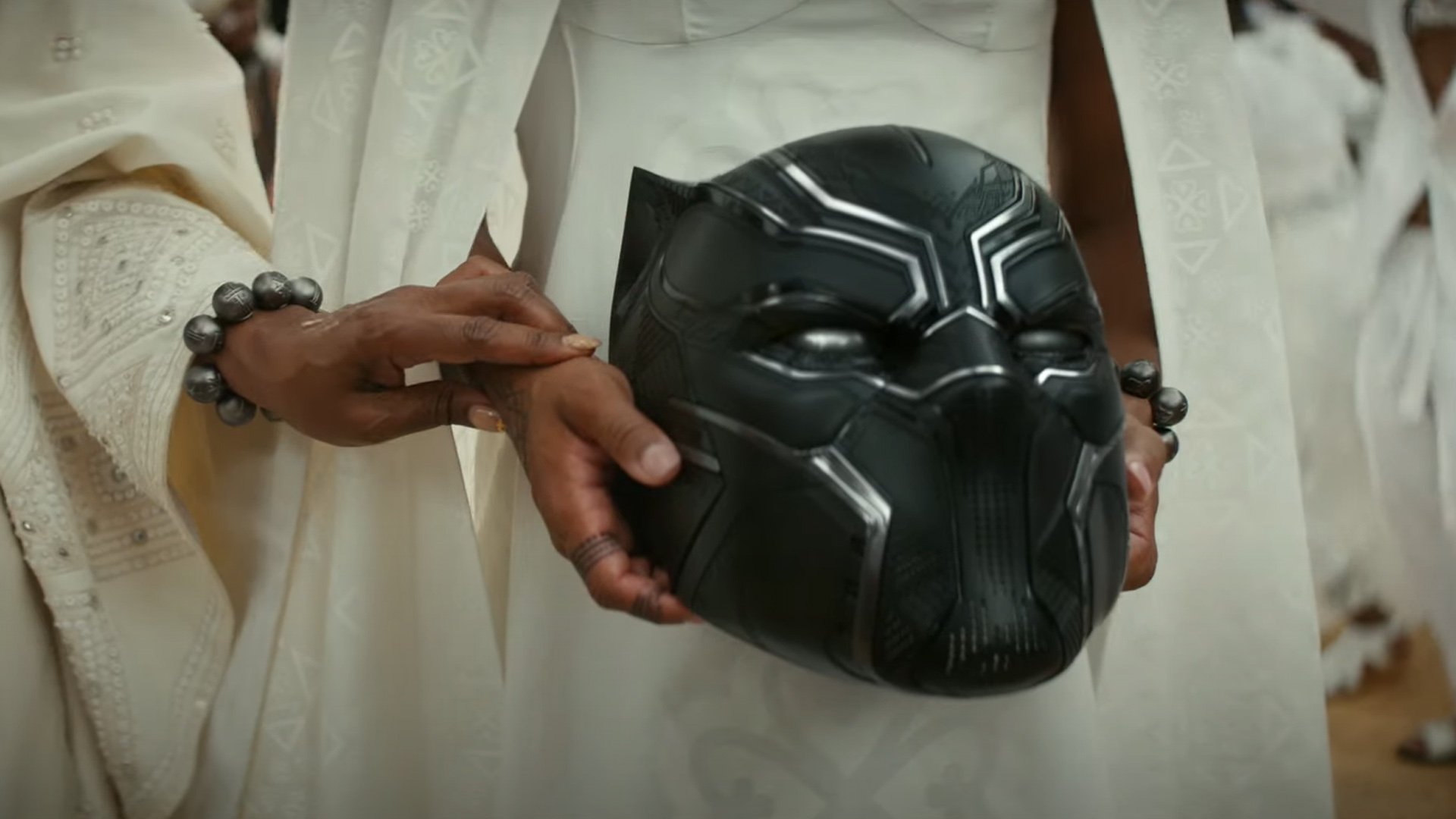
Everyone involved in the original Black Panther film, Boseman included, fought for equal representation and inclusivity throughout its development, ensuring Black communities had a superhero of their own to admire and be inspired by. Its sequel continues to carry the torch for that fight and then some, paying a deeply touching homage to Boseman’s own legacy and the Marvel character at large.
It’s unclear what the future holds for Black Panther in the MCU. Producer Nate Moore suggests Marvel has “ideas” about a third solo outing for Wakandan’s protector-in-chief. The film’s ending leaves plenty of room to further explore the rich symbolism of, and mythos behind, the Black Panther. Even if a third movie isn’t forthcoming, there are plenty of Black Panther spin-offs in the works, including a Disney Plus show starring Ironheart (Dominique Thorne), who makes her MCU debut in Wakanda Forever, and a possible Midnight Angels TV series.
Whatever happens with the Black Panther franchise, Wakanda Forever is a heartbreakingly fitting tribute to Boseman – and a beautifully apt example of the work its cast and crew put into it. Collectively, they fought through their own pain to deliver the best MCU film since Avengers: Endgame, one that can help us all to process Boseman’s passing and heal. For that, we should be eternally grateful.
For more Black Panther-based content, read our spoiler-free Black Panther: Wakanda Forever review. Alternatively, check out our Black Panther: Wakanda Forever ending and post-credits scene explained article.
Black Panther: Wakanda Forever arrives in theaters worldwide on November 11.
As TechRadar's senior entertainment reporter, Tom covers all of the latest movies, TV shows, and streaming service news that you need to know about. You'll regularly find him writing about the Marvel Cinematic Universe, Star Wars, Netflix, Prime Video, Disney Plus, and many other topics of interest.
An NCTJ-accredited journalist, Tom also writes reviews, analytical articles, opinion pieces, and interview-led features on the biggest franchises, actors, directors and other industry leaders. You may see his quotes pop up in the odd official Marvel Studios video, too, such as this Moon Knight TV spot.
Away from work, Tom can be found checking out the latest video games, immersing himself in his favorite sporting pastime of football, reading the many unread books on his shelf, staying fit at the gym, and petting every dog he comes across.
Got a scoop, interesting story, or an intriguing angle on the latest news in entertainment? Feel free to drop him a line.